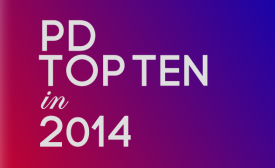digital diplomacy
Israel’s hasbara efforts just received an enormous boost thanks to a new collaborative effort launched jointly by the Prime Minister’s Office and StandWithUs. The initiative, in which StandWithUs will coordinate closely with the PMO’s National Information Directorate, is designed to “educate young people about how to use social media for education and public diplomacy.”
Organized by the Ministry, the conference aimed at creating awareness and encouraging the officials and staff to participate and inject impetus to the advancement of the country's foreign policy goals and objectives of Ethiopia through the proactive deployment of digital diplomacy.
At times, digital diplomacy may be used to foster dialogue between two countries that have yet to establish diplomatic relations. Last month, Twitter announced that another world leader had joined the world of digital diplomacy – Palestinian Authority President Mahmoud Abbas.
The Islamic State terrorist group has launched a big social media campaign to try to capitalize on the Paris massacre. Twitter feeds and other social media messages began Sunday, urging each Muslim to act as a “city wolf” and kill co-workers and fellow commuters.
In 2014, China stepped up its campaign to shape international norms governing the Internet, moving vigorously in its public diplomacy and behind the scenes to subjugate the online world to state power.

The ten most notable PD stories from 2014.
The Pentagon dismissed an attack on its social media sites Monday as “cybervandalism,” hitting back at an aggressive effort by supporters of the Islamic State to wrest control of Twitter and YouTube accounts belonging to U.S. Central Command.
For diplomats and diplomatic institutions, social media has become an important working tool as it enables them to gather and disseminate information throughout the diplomatic milieu in real time.







